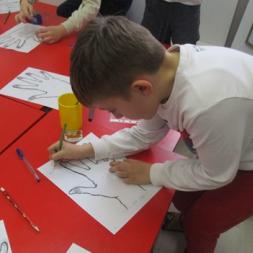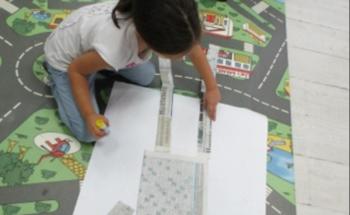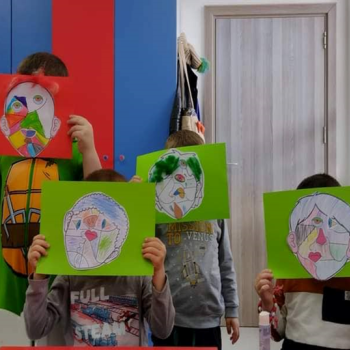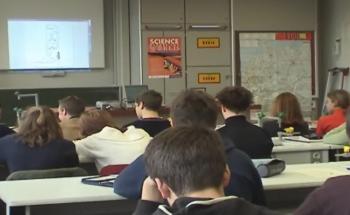
Putting Pre-Primary CLIL into Practice
This course is for teachers working with children aged from 2/3 to 6/7. The course content has been developed by award-winning teacher, trainer and author Keith Kelly incorporating his work in education consultancy, with best practice at his school - Anglia School - with many years of experience working with very young learners.
Description
At Anglia School children experience a hands-on, learning-by-doing education from the very start. Our learners are immersed in curriculum activities through the English language where the lessons have been built around our intimate knowledge of how children develop at this very young age. The curriculum is thematic for our pre-school groups and when children are learning about ‘forests’, for example, the week is spent exploring science, music, art, maths, craft, story, culture, citizenship, inclusion and wellness through our planned topic. At the same time, we recycle our competences throughout the year, so our children learn about ‘processes’ through our science activities and these are reused during our cooking activities. In this way, we can plot language development throughout the year as we work through our early-years curriculum. It is quite normal to find a 4-year old who has been with us for a year who can communicate quite fluently on the topics we learn.
During our Pre-Primary CLIL course we cover the range of early-years teaching methods and participants are given full access to our entire curriculum. We also participate in thematic CLIL activities with our children. We go on to develop resources together with course participants based on the specific teaching and learning needs of our participants for them to be able to use back at their own school. All resources created are collated into bespoke collections published through the FACTWorld Journal and participants receive their own personal copy. This enables us to disseminate the results of our teacher development courses to our participants and their schools, but also to a much wider audience interested in Putting Pre-Primary CLIL into Practice. You can find all our publications at www.factworld.info.
Last, but by no means least, participants experience the language, sites, sounds, history and culture of the wonderful city of Plovdiv through organized visits and activities.
Learning objectives
During the course Putting Pre-Primary CLIL into Practice, participants will be able to understand the processes involved in learning to learn in a foreign language for very young children. This includes exploring the process of delivering input content to very young learners through a foreign language. In doing so, participants will develop an awarenes of the conceptual, procedural and linguistic demands that are made on their children.
In developing an awareness of these demands, participants will learn how to assess, mediate and moderate language demands of pre-primary CLIL lessons to meet the specific needs of their learners.
In examining the delivery of input content, participants will be encouraged to adopt age-appropriate input processing instruments and methods in their lessons to help learners deal with curriculum content in a foreign language.
Participants will also create supportive output scaffolding for talking in the content curriculum areas through English as a foreign language.
With these activities, participants will gather and create sequenced curriculum-based materials for their CLIL classes back in school.
As part of the course, participants will communciate through the medium of English with other participants on CLIL teaching-related topics of discussion. They will collaborate in group problem-solving activities though the medium of English and present results of group work in plenary in English.
Additionally, the course aims to provide practice for participants in leading curriculum-based activities in the English language with their peers.
Methodology & assessment
Intercultural communicative competence is developed throughout our curriculum and we implement this skill area by developing learning experiences which enable children to look at ‘self’ and ‘other’. Participants are asked to practice similar activities in workshops, and suggest and create activities for their curricula where this competence can be developed.
Anglia School methodology employs ‘up-down’ dynamics during lessons where our activities are specially targeted to meet children’s learning needs. In practice, we prepare activities to move between more and less dynamic experiences in order that our learners can maximize their learning potential. Participants are asked to consider this dynamic factor in sequencing activities they practice and materials they produce.
We develop a wide range of age-appropriate curriculum learning skills (sorting, comparing, measuring etc.), which are presented in our lesson materials and followed by discussion of principles and how to best recycle and consolidate these skills over time. Participants are invited to show this sequencing and recycling of skills in the materials they produce.
A lot of time is invested in appropriate task sequencing from input to output and participants are presented with a rich range of early-years input content materials where methods used to help children process these inputs is explicitly shown, similarly where our learners are asked to speak in English, a lot of thought goes in to how we support their talk and participants see this scaffolding in our course materials. Participants are asked to make use of this ‘guided input’ and ‘supported output’ in their own materials writing.
Certification details
The Putting Pre-Primary CLIL into Practice certificate includes a detailed summary of course content covered. The total number of days and hours attended on the course is also indicated. Each certificate is signed by the course trainer, Keith Kelly, dated and stamped with the official institution stamp.
All other documentation can also be provided, signed and stamped where necessary and by request.
Pricing, packages and other information
-
Price:400Euro
Additional information
-
Language:English
-
Target audience ISCED:Early childhood education (ISCED 0)
-
Target audience type:TeacherHead Teacher / PrincipalTeacher Educator
-
Learning time:20-25 hours
Upcoming sessions
Past sessions
More courses by this organiser

Intercultural Communicative Competence for Young Learners through CLIL



